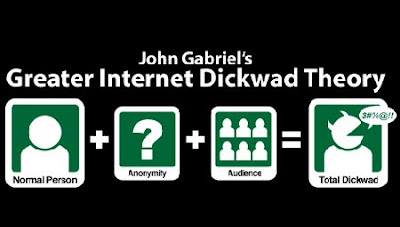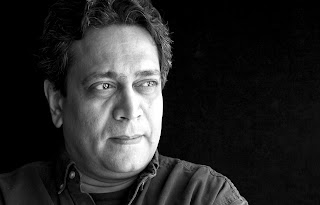During the 2010 Hamilton election, I saw things that made me shake my head so much...I'm still needing chiropractic attention.
I'll explain all that in a second, but first, a little primer as to how I see local governance.
We, the people, are both 'Employer' and 'Customer' at the same time.
Councillors and the Mayor are 'Employees' and 'Service Providers' at the same time. (Additionally, all City Council members both 'serve' and 'lead'.)
The idea of an 'Employer' hiring a staff, giving them the keys to the facilities, providing them free-rein to all the resources at their disposal...and feeling they have a voice at the conclusion of a four-year contract is...preposterous.
Moreover, the idea of an 'Employer' hiring their staff based primarily on 'name recognition' is insufferable.
With so much at stake, don't you think that it behooves the 'Employer' to vet the candidates thoroughly? To effect as stringent a selection process as is possible, to corral as much information as is possible, to impose their not-inconsiderable abilities (they are the 'Employer', don't forget. The 'Owner' of it all...) on determining to whatever extent they are capable, which candidates bring to the positions the best array of skills, aptitude and, dare I suggest it, 'brilliance'?)
On the other side of the coin, don't you think that there should be some kind of air of propriety on the part of a candidate, one that doesn't have, shall we say, someone coming in off the street with little relevant within their skill-set for what the position requires, except an admirable enthusiasm...and a desire to 'do better than the bum wot was working there before me'? Ambition is one thing. Social-conscience-tinged arrogance is another.
How many mayoral candidates did we have last October? Fifteen?
How many Ward 2 candidates were there last October? Nineteen?
Six in Ward 3, seven in Ward 6, five in Ward 13...
To properly get a handle on this many candidates...think about it: those in Ward 2 had thirty-four candidates to sort through, in toto...in order to do justice to the exercise-
Well, I don't believe the average person does justice to it, or even can do justice to it. This is, if we go back to my analogy, an 'interview process'. We're interviewing for the positions that in many ways, will determine our quality-of-Life more than any others. Even in an 'ideal' setup, one that's a manifestation of the notion of 'increasing the relationship of engagement between residents and their Councillors', it would be too much. Within our current construct, it's virtually impossible.
So I'm here to talk about two issues. The first is the idea of people taking far more seriously the responsibilities of developing 'informed, qualified opinions' about those they're considering voting into office, as well as the same being true for those seeking election. And the second is the idea of having what would amount to a 'primary' setup, whereby fifteen candidates may start out on the election campaign path, but no more than a pre-determined number...I'm thinking five...would make it onto the final ballot. "To both weed out the 'questionable and time-consuming' candidates, and provide a more-focused field for voters to seriously consider." (Thanks, me.)
Civic engagement and 'responsible voting' are connected. It's unlikely you'd get authentic 'responsible voting' from an electorate who is detached from the process. One that isn't genuinely conversant with the issues facing the city (the equivalent is a sports fan who can wax dialectical about how their team's faring, individual stats, prospects), who hasn't been in dialogue with their Councillor, who hasn't either attended town hall meetings, candidate debates, or isn't a member of a neighbourhood or community association. So in order to have genuine 'responsible voting' across the board, it's the behaviour that leads up to voting day that matters most, to what extent the previous 1460 days of citizen activity could be seen as being reflective of credible 'civic engagement'.
In order to have a great 'interview', both parties have to be prepared. The 'Employer' has to have done their homework, taken the time to examine the candidate's résumé, and most importantly, actually interview the person. Actively interview them. I believe my stance on what's required of residents (the 'Employer') is clear, I don't need to belabour the point.
The same goes for the candidate. They need to have done their homework. They need to have developed an understanding of what the job requirements are, of the overall scope of the position.
From where I was standing, I saw a distinct paucity of this in the last election. (I did, however, see some great candidates. My eyesight is not entirely jaundiced.)
I was appalled by how little was grasped by so many candidates about local governance. About the normal demands placed upon Councillors. About how little they actually comprehended about issues.
After one debate in particular, I came away with this belief: a candidate has to be at least as cognizant of issues, of approaches, of options as the incumbent. (If they're running. Which by-and-large, they usually are.)
And in today's world of blogging, with so many resources at our fingertips, there's no reason at all why someone sincerely interested in seeking office can't put themselves through an 'apprenticeship' of sorts, properly preparing themselves to engage in a full-on, in-depth, substantive election campaign...where debates are so God-damned disappointing, so utterly dispiriting.
Primaries. Run-offs. Yes, I know it smacks of partisan politics. Party-based systems. But I cannot believe that anything good is being served when we have two-and-a-half dozen mayoral candidates in a race.
Whose needs are actually being addressed here, under these circumstances? Is anyone's?!?
Frankly, candidates need to give a little more thought, some sincere, soul-searching thought to what they can contribute to an election. Especially if it means that the concerted focus that a mayoral campaign deserves, ends up being compromised to the equivalent of rough gauze. (I'd say that at least a giant's handful of those seeking the mayor's robes shouldn't have cluttered things up.)
Short of this, I believe we need to consider a means to prevent this kind of 'occluded' result. We need some kind of 'play-off' system.
Now, for those crying 'Foul!' at the inequities associated with this, let me remind you that as I'm constantly yammering-on about this new paradigm, where our citizenry is aware, involved and engaged, nothing would be lost in a 'primary' setup. Because if we had a discriminating group of voters, they'd get to the heart of the matter, separate the wheat from the chaff-
I have faith in people 'doing the right thing' under appropriately 'right' circumstances.
No, I do not have a firm proposal to present to you. Not right now, not yet. But surely this is something to consider.
Finally, how to reduce the number of 'mysteries', scandals and controversies.












